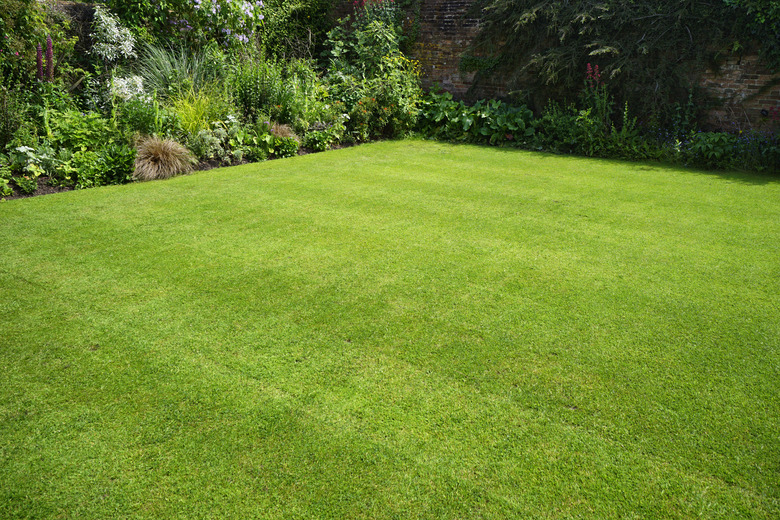Why Does The Grass In England Stay Green All Year?
England enjoys a mild climate, even though it is located far north of the equator, which partially explains why is grass green there year-round. Even in winter, the moderating effects of the Atlantic help protect the island from intense cold.
Cool-season turf types relish this environment, resulting in green grass in winter even when temps occasionally dip down to 20 to 30 Fahrenheit and winter rains abound, or in the sunny but comfortably cool summers with highs around 80 Fahrenheit. If warm-season grasses are grown, they prosper only in the warmest areas; they turn thatch-brown in the short, cool and moist winter days in England.
Types of Grass in England
English grass types include both cool- and warm-season grasses. Cool-season types dominate as they are best suited to the cooler, milder temps that exist most of the calendar year.
Examples of English lawn grasses include creeping red fescue (Festuca rubra), perennial ryegrass (Lolium perenne), timothy (Phleum pratense), meadow grass (Poa spp.) and bent grass (Agrostis spp.). Warm season grasses are used only in the warmest summer areas in the coastal southwest, such as Bermuda grass (Cynodon dactylon) or Japanese lawn grass (Zoysia japonica).
England's Climate for Growing Grasses
England's mild summer temperatures, ample rainfall and long day lengths are perfect for a wide array of traditional cool-season lawn grasses. According to Trebrown Nurseries, the vast majority of England falls into U.S. Department of Agriculture plant hardiness zone 8, where winter lows drop rarely get below 10 to 20 Fahrenheit for very long.
Much like how winter cool-season lawns in the American Deep South (also in USDA zone 8) look emerald green in winter, this also occurs in England. One notable difference is that in England, the length of a winter day is considerably shorter.
Grass in England Growing Conditions
From spring to fall, the same cool season lawns that remained green across the cool, moist winter relish the longer days and daytime temperatures between 60 and 80 degrees Fahrenheit. Moreover, England is frequently overcast in summer with the constantly possibility of a "pop up" shower. Again, ideal conditions for a grass are ample humidity, soil moisture and light. Soils are fertile and with a strong garden legacy in England, much attention is given to maintaining an impeccable landscape.
Considerations for English Grass Types
English turf managers and groundskeepers appropriately choose the type of grass for the use of the landscape. Lawns that are rarely walked upon are planted with "softer" bladed turf grass species and those areas earmarked for strolling or athletic use must be resilient or have good "wear."
For example, the grass courts at the All-England Lawn Tennis and Croquet Club, the host of Wimbledon tennis major, were changed to perennial ryegrass in 2001 to wear better from the increased play in July. Lawns that look or perform poorly are removed.
Maintaining Green Grass in Winter
In the cooler months of winter, increasing mowing height or not mowing cool-season grasses at all keeps the lawn looking its densest and deepest green. Fertilizing of the lawn occurs in both fall and spring to ensure it grows in good health for the entire year.
